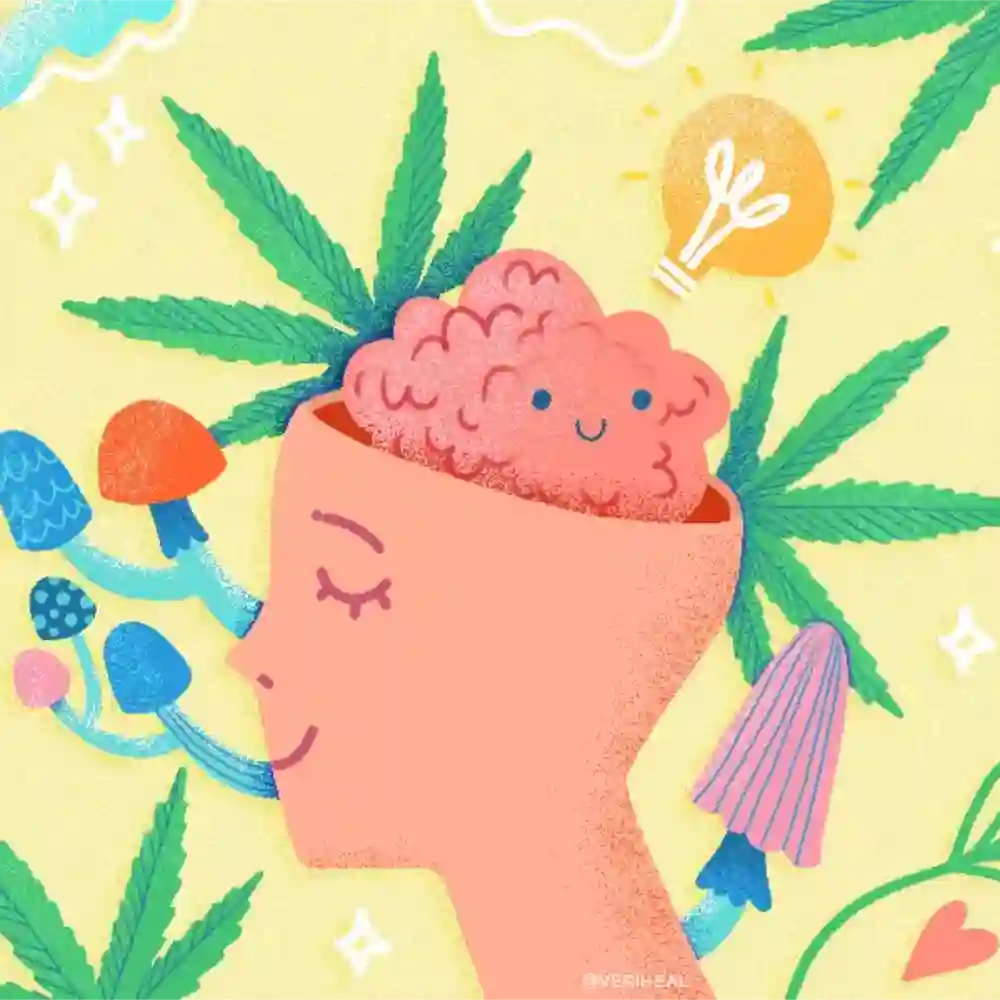Cannabis and Neuroplasticity: Unpacking the Brain’s Adaptability and Cognitive Enhancement Potential

The conversation around cannabis and the brain often gravitates towards immediate effects like altered perception or relaxation. However, a more profound and less explored aspect lies in cannabis’s potential interaction with neuroplasticity—the brain’s remarkable ability to reorganize itself by forming new neural connections and pathways throughout life. This inherent adaptability is crucial for learning, memory, recovery from injury, and overall cognitive function. While public perception can be polarized, emerging research suggests that certain cannabis compounds may influence neuroplasticity in ways that could have significant implications for cognitive enhancement and therapeutic applications.
Understanding Neuroplasticity: The Brain’s Ever-Changing Landscape
Traditionally, it was believed that the adult brain was largely fixed in its structure. We now know this isn’t true. Neuroplasticity encompasses several key processes:
- Synaptic Plasticity: The strengthening or weakening of connections between neurons (synapses). This is fundamental to learning and memory formation.
- Neurogenesis: The birth of new neurons, primarily occurring in specific brain regions like the hippocampus, vital for memory and mood regulation.
- Cortical Reorganization: The ability of different brain areas to take over functions if another area is damaged.
These processes are constantly at play, influenced by our experiences, environment, learning, and even substances we consume.
The Endocannabinoid System: A Key Player in Brain Adaptability
At the heart of cannabis’s interaction with neuroplasticity is the endocannabinoid system (ECS). This complex network of receptors (CB1 and CB2), endogenous cannabinoids (endocannabinoids), and enzymes is ubiquitous throughout the body, including the brain. The ECS plays a critical role in regulating a vast array of physiological processes, including mood, sleep, appetite, pain, and, crucially, neuroplasticity.
CB1 receptors are particularly abundant in areas of the brain associated with cognition, learning, and memory, such as the hippocampus and prefrontal cortex. Endocannabinoids, like anandamide (AEA) and 2-arachidonoylglycerol (2-AG), act as retrograde messengers, influencing how neurons communicate and adapt. They are essentially the brain’s internal regulators of neural activity and plasticity.
How Cannabis Compounds Interact with Neuroplasticity
Phytocannabinoids from the cannabis plant, such as THC and CBD, mimic or modulate the effects of our own endocannabinoids, thereby influencing the ECS and, consequently, neuroplasticity.
- THC (Tetrahydrocannabinol):THC primarily binds to and activates CB1 receptors. While high doses of THC can acutely impair memory and cognitive function, chronic low-dose exposure or specific patterns of use might have different effects. Some preclinical studies suggest that THC, especially at lower doses, could influence synaptic plasticity and potentially have neuroprotective effects, particularly in the context of neurodegenerative diseases where neuroinflammation is a factor. The exact mechanism and therapeutic window are still under intense investigation.
- CBD (Cannabidiol):CBD does not directly bind to CB1 or CB2 receptors with high affinity. Instead, its actions are more complex and multifaceted. CBD is gaining significant attention for its potential neuroplastic effects:
- Neurogenesis Promotion: Preclinical research indicates CBD may promote neurogenesis in the hippocampus, a critical area for memory and emotional regulation. This could have implications for conditions like depression and anxiety.
- Synaptic Plasticity Modulation: CBD appears to modulate synaptic plasticity, potentially enhancing learning and memory by influencing glutamate transmission and other neurotransmitter systems.
- Anti-inflammatory and Antioxidant: CBD’s powerful anti-inflammatory and antioxidant properties protect neurons from damage, which is vital for maintaining brain health and plasticity. Chronic inflammation can hinder neuroplastic processes.
- Anxiolytic and Antidepressant Effects: By influencing pathways related to mood, CBD can create an environment more conducive to learning and cognitive function by reducing stress and anxiety, which are known inhibitors of neuroplasticity.
Cognitive Enhancement Potential: A Nuanced Perspective
The idea of “cognitive enhancement” with cannabis is complex and far from a simple yes or no answer.
- Potential for Specific Conditions: For individuals with neurological or psychiatric conditions characterized by impaired neuroplasticity (e.g., Alzheimer’s disease, PTSD, depression), targeted cannabinoid therapies could potentially restore or enhance cognitive function by fostering neural repair and adaptation.
- Healthy Individuals: For healthy individuals, the concept of “enhancement” is more speculative and likely dependent on dosage, cannabinoid ratios, individual genetics, and the specific cognitive domain. While anecdotal reports exist, robust clinical evidence for significant general cognitive enhancement in healthy adults is still emerging. The acute effects of THC on working memory, for instance, are well-documented.
The Road Ahead: Research and Personalization
Understanding cannabis’s true impact on neuroplasticity requires extensive, rigorous human clinical trials. Future research will need to:
- Delineate Dose-Response: Determine optimal dosages and cannabinoid ratios for specific neuroplastic outcomes.
- Investigate Long-Term Effects: Study the chronic impact of cannabis use on brain structure and function.
- Explore Individual Variability: Account for genetic and lifestyle factors that influence how individuals respond to cannabis.
- Isolate Specific Cannabinoids/Terpenes: Further understand the unique contributions of individual compounds beyond THC and CBD.
The brain’s incredible capacity for change, coupled with the intricate actions of the endocannabinoid system, positions cannabis as a fascinating subject in the realm of neuroplasticity. As science progresses, we may unlock precise ways to harness its therapeutic potential, not just for immediate effects, but for long-term brain health and cognitive adaptability.